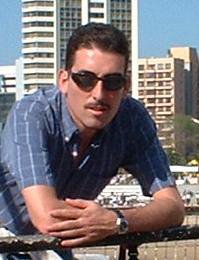Free Trade´s Biggest Loser

Venezuelan President Hugo Chávez Frías no doubt believes that he was successful in stealing the show while at the same time throwing a monkey wrench in the free trade negotiations over the weekend at the Summit of the Americas in Mar del Plata, Argentina. His populist views along with an aim to promote socialism across the Latin American continent have won over many in the region. To the dismay of some leaders, like Mexico´s Vicente Fox, Argentine President Néstor Kirchner let Chávez take center stage and hold a massive rally at a stadium which turned out to be a U.S.-bashing, socialist-flag-waving event. Jumping up and down in perfect rhythm at his podium, Chávez led about 40,000 protesters show the world that they were trouncing on the U.S.-backed initiative. The Venezuelan president says that any free trade accord will be drafted by the Latin American nations themselves and not the United States. His position was supported by Argentina and Brazil, the region´s largest economies.
But Venezuela has a lot to lose by backing out of its promise to start free trade talks next year. As the petroleum market continues to soar, the country once again is riding on the coat tails of a false hope oil bonanza as it did during the world´s energy crisis of the 1970s. During that time, the country´s economy improved drastically as did the lifestyles of many Venezuelans. Unfortunately new found riches fueled corruption in government, which led to a series of disasterous political administrations. The growing problem of political patronage and inefficency in public services compounded by an overall deterioration in living standards evoked an array of discontent that brought Chávez where he is today.
The once Army rebel leader who unsuccessfully led a coup in 1992 against President Carlos Andrés Pérez is slowly adopting policies enacted in Cuba in the 1960s as he promotes his own type of "socialism for the 21st century." Much like Robin Hood, his government is confiscating private properties, including empty vacation homes, which are not being used or occupied and turning them over to the country´s poor. Although he hasn´t imposed precise travel restrictions, he has limited the annual amount of dollars a Venezuelan can exchange to go abroad. Many well educated residents, who have the means and the determination, have left Venezuela entirely starting new lives in cities like Miami and Madrid.
As he enjoys this wave of popularity among Latin America´s poor and capitalizes on the oil boom, Chávez has become another in a long line of shortsighted Venezuelan presidents who has overlooked diversifying his country´s economy. Venezuela´s vast riches include promising but inefficient state run aluminum and steel industries that can offer so much to the rest of the continent, including the United States. A good portion of the country´s gold resources is untapped because there has been no drive to seek scientific investigations or outside investors. Even with some of the best beaches in the Caribbean and the largest waterfall in the world, the tourism industry is still underdeveloped.
Latin Americans love when their leaders stand up and ridicule a U.S. president -- especially if it is someone like George W. Bush. But be it what the United States represents to many, Latin America, with its history of inept presidents and misguided policies, needs to commingle with the United States economy if its leaders really intend on improving the lives of their people.


0 Comments:
Post a Comment
<< Home